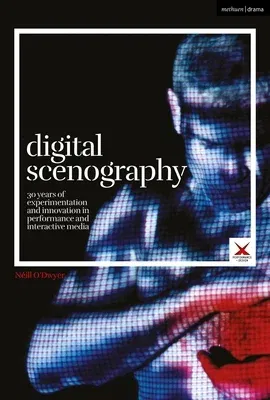This book uses digital media theory to explore contemporary
understandings of expanded scenography as spatial practice. It surveys
and analyses a selection of ground-breaking, experimental digital media
performances that comprise a genealogy spanning the last 30 years, in
order to show how the arrival of digital technologies has profoundly
transformed performance practice. Performances are selected based on
their ability to elicit the unique specificities of digital media in new
and original ways, thereby exposing both the richness and shortcomings
of digital culture.
O'Dwyer argues that contemporary scenography is largely propelled by and
dependent on digital technologies and represents a rich, fertile domain,
where unbridled creativity can explore new techniques and challenge the
limits of knowledge. The 30-year genealogy includes works by Troika
Ranch, Stelarc, Klaus Obermaier, Chunky Move, Onion Lab and Blast
Theory. In addition to applying a broad scope of performance analysis
and aesthetic theory, the work includes artists' interviews and
opinions.
The volume opens important aesthetic, philosophical and socio-political
themes in order to highlight the impact of digital technologies on
scenographic practice and the blossoming of experimental
interdisciplinarity. Ultimately, the book is an exploration of how
evolutionary leaps in technology contribute to how humans think, act,
make work, engage one another, and therefore construct meaning and
identity.

